A Few Resonant Songs by Joni Mitchell
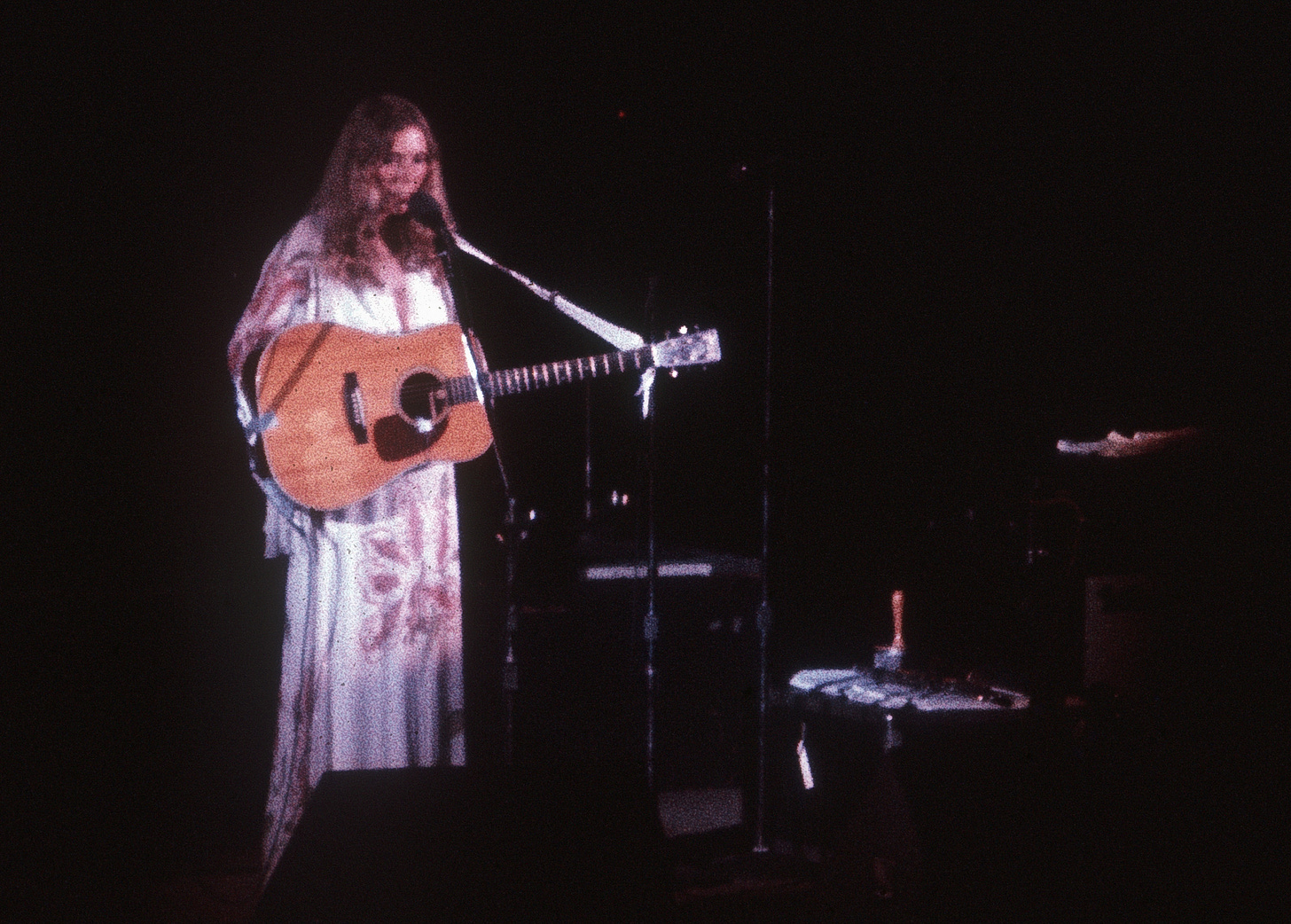
Today, November 7, 2024, Roberta Joan Mitchell (née Anderson) turns eighty-one years old. As we seem to be in something of a Joni Mitchell renaissance (Joanaissance?), I had been considering marking this occasion with a piece about her best-selling 1974 album Court and Spark, and her highly successful North American tour, several performances from which formed her second album of the year, Miles of Aisles. While I may still write that piece someday, such a wholly historical view might feel slightly out of touch with the current moment, and I don’t feel like working on it now. Nevertheless, I still want to mark Ms. Mitchell’s birthday, so I have opted for a more impressionistic view (to use an artistic metaphor which she might appreciate) of songs that feel appropriate to this point in time, but which may also allow you some brief mental escape from it.
“The Fiddle and the Drum” from Clouds
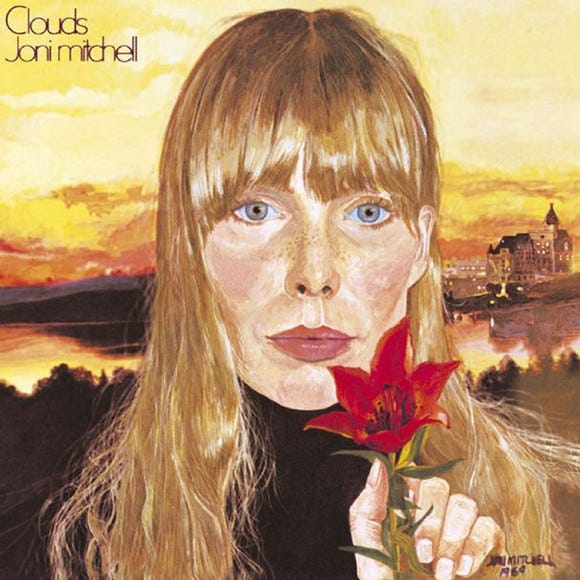
One of the more politically charged songs in Joni’s early repertoire is this quiet, remorseful portrait of America’s bitter, violent side from the point of view of a friend who still sees its potential. (It should here be noted that Mitchell is Canadian). While the song is noteworthy in its own right, it grows even more haunting when you realize that it is a lamenting, minor key subversion of the “The Star-Spangled Banner.” (It also references “When Johnny Comes Marching Home”). Although written during the War in Vietnam, “The Fiddle and the Drum” is a good reminder that America has a darker side which it has never truly buried. Mitchell also performed this song during a performance on The Dick Cavett Show which prevented her from attending Woodstock, an experience which led her to write her song of the same name.
“Don’t Interrupt the Sorrow” from The Hissing of Summer Lawns
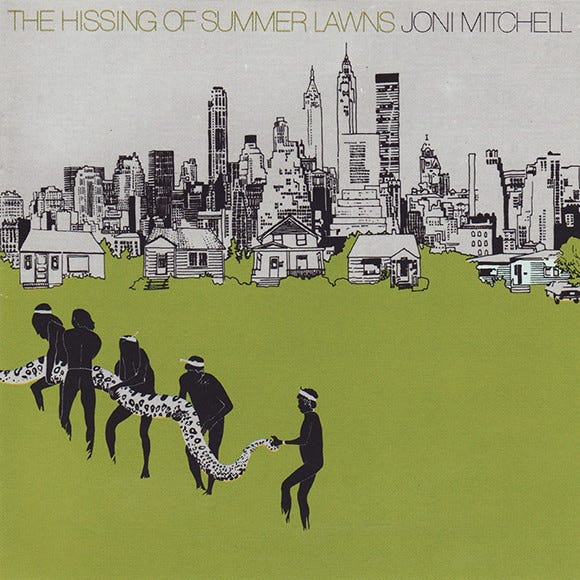
This stream-of-consciousness rumination on matriarchy, patriarchy, religion, “progress,” and deep time is one of the most fascinating tracks on her (under-appreciated at the time of its release) seventh studio album. It centers on an argument between a man and a woman, the woman expressing awareness of female power on the rise, the man undermining her points by invoking the space race and geological processes. However, the man’s behaviour seems to undermine or at least contrast with his high-minded ideas. Juxtaposed with the argument is the vast canvas of culture, tradition, religion, and generations being born and dying (though Joni reverses the order of that last phrase in an interesting twist). Here’s a whole essay about the lyrics.
“The Three Great Stimulants” from Dog Eat Dog
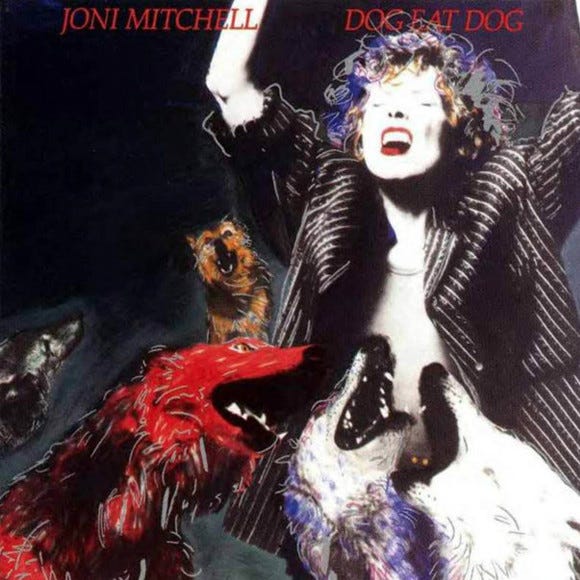
Another song about the United States’ war-mongering, more lyrically and musically complex than “The Fiddle and the Drum,” which contrasts the war sown abroad with the relative peace and freedom of America itself. Foreign wars are here positioned as part of a sort of military-industrial-entertainment complex, put on for the benefit of ennui-riddled first-worlders. Joni continues with a jab at American litigiousness, before concluding with a stanza about environmental destruction. Throughout the song, however, she also sings of “madmen” who “sit up building bombs/And making laws and bars” who want to “slam free choice behind us.” These lines are sung twice, with the destruction of choice first depicted as a desire of the madmen, but then as a prediction—one which might end the status quo of how “No tanks have ever rumbled through these streets/and the drone of planes at night has never frightened me.”
“Slouching Towards Bethlehem” from Night Ride Home
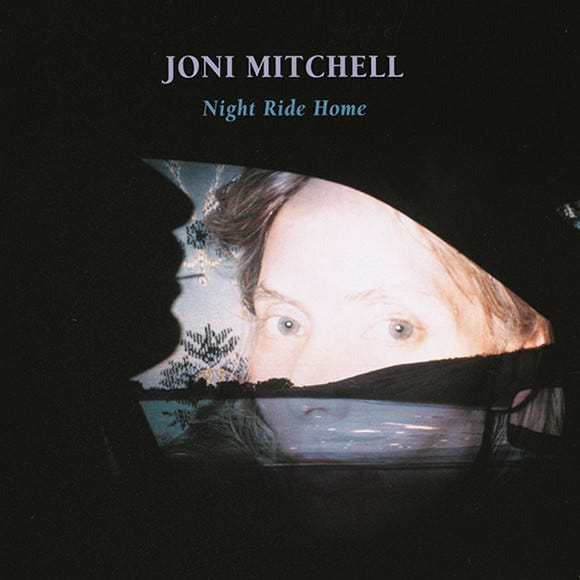
Largely a musical setting of William Butler Yeats’s poem “The Second Coming.” The original poem was written in 1919, in the wake of the First World War and the 1918 flu pandemic, and at the beginning of an Anglo-Irish war. Joni’s adaptation song was released in 1991, and may have seemed an odd release in the context of the start of the so-called “end of history” as the Cold War drew to a close, but in the current moment of populism and backsliding of democracy, not to mention conflict in the region referenced (no doubt due to its religious significance) by the original poem, it feels terribly prescient—and apocalyptic, particularly with those booming drums (in the deep?), and the sirens heard in the latter half of the piece.
Stay safe, and be kind to yourselves and others, friends.




